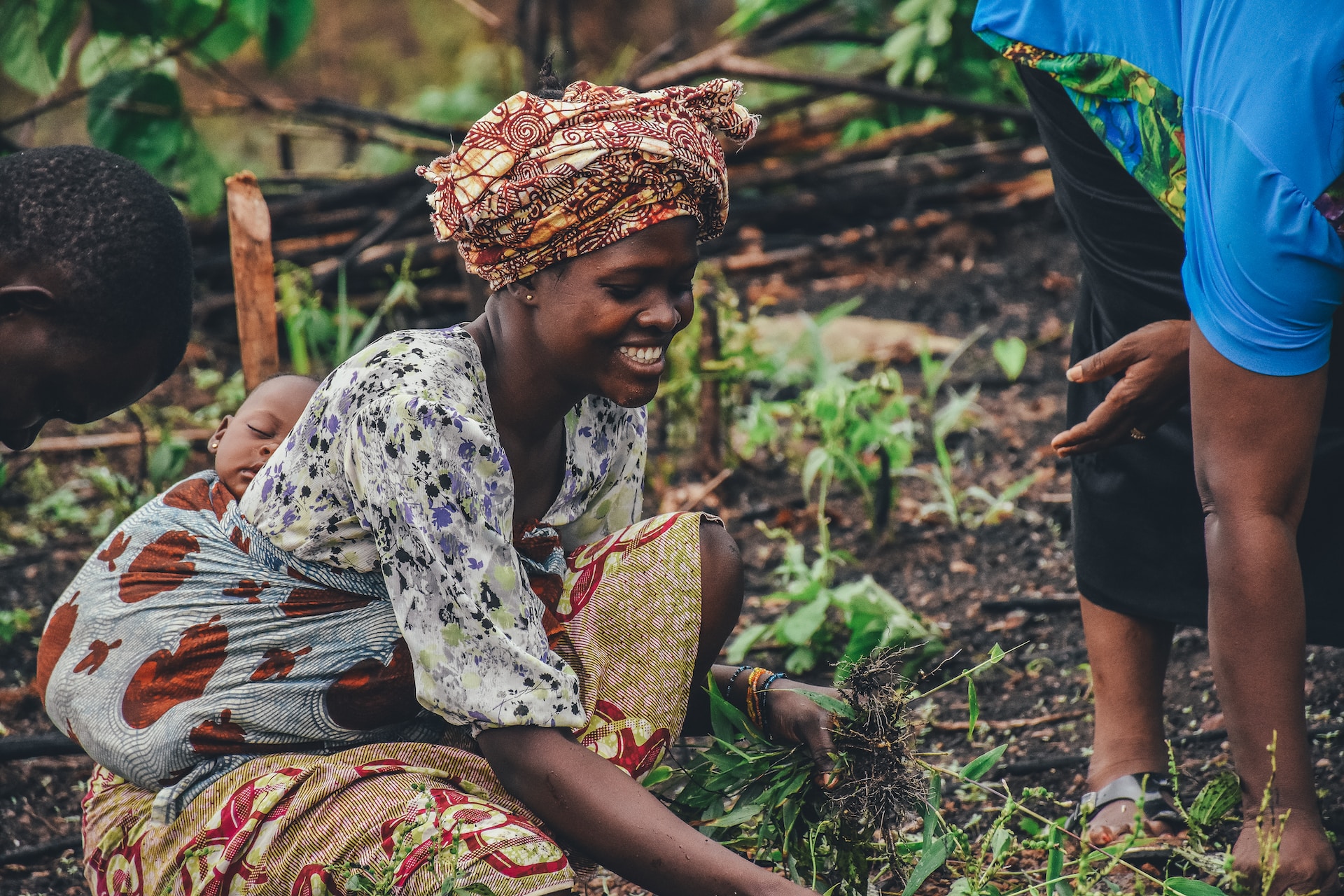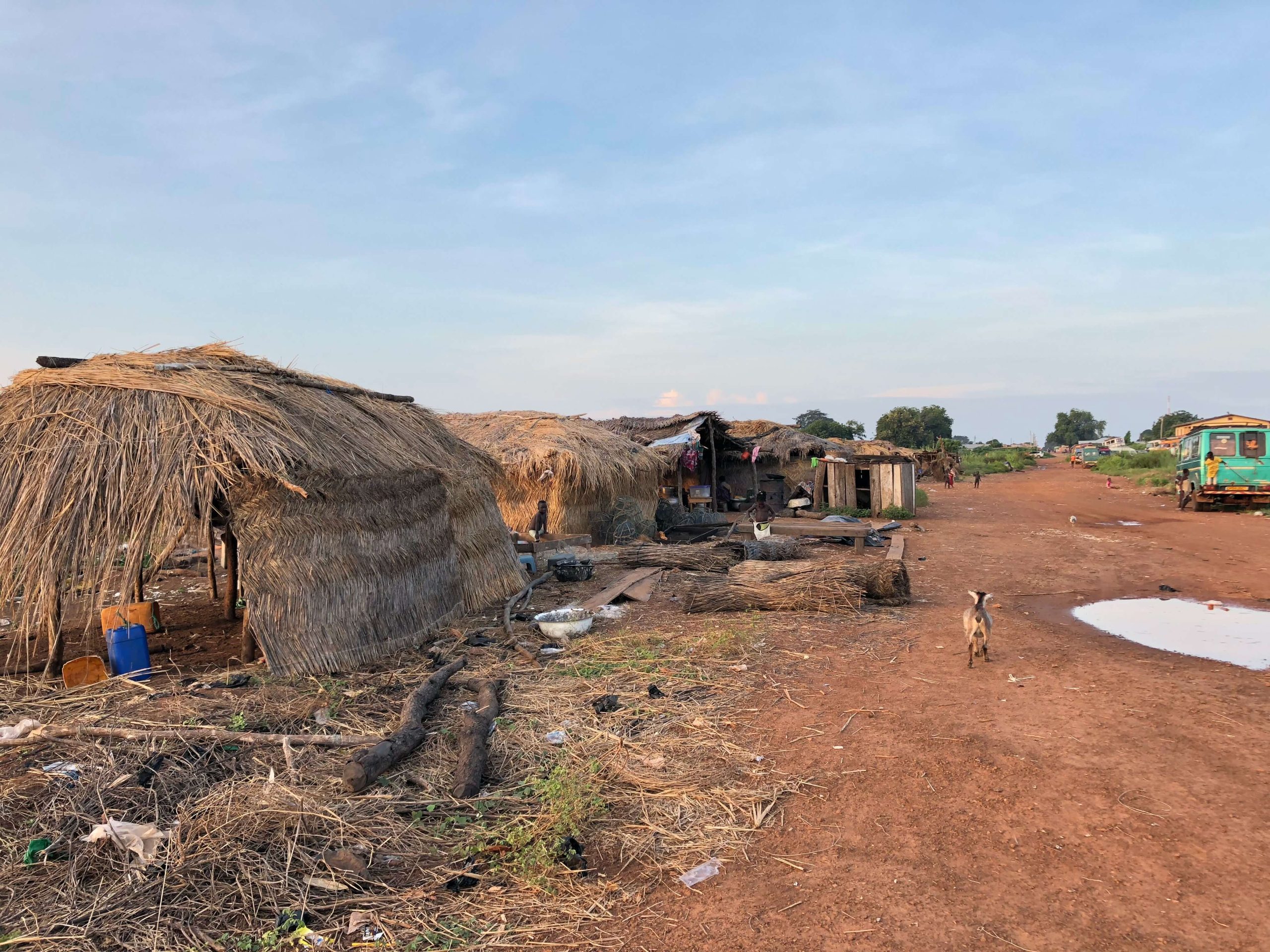Embracing African Solutions for African Problems
Africa has a history of not owning its own solutions. This is because Africa has been exploited by the international arena for decades, which meant that every economic, social and environmental challenge always had western inspired solutions. However, Africans have proved to have tailor-made solutions to their challenges using available resources and giving confidence in ownership. Malawi is common in finding or designing solutions to confront its daily challenges. Due to the multifaceted problems that the country encounters, the high cost of living, the fuel crisis, the skyrocketing unemployment rate etc., Kabaza (Bicycle) have become the most effective and efficient means of transport in the country. The streets of Malawi are a craze of Kabaza drivers going up and down looking for customers/passengers.
The encouraging part of this business is that most Kabaza owners are young adults, which has eased the burden of unemployment and reduced crime. The Kabaza is easily accessible in any part of the country and therefore functions informally like an uber as one can get a Kabaza from anywhere, even as close as getting one by the doorstep. In terms of job creation, it is a value concept. It only requires a few resources or capital. Anyone can start the trade as long as they have a bicycle. The Kabaza business is meeting a critical need in Malawi by offering the most flexible and affordable means of transport. Undoubtedly, it brings socio-economic groups out of poverty and empowers the youth to be self-reliant. Therefore, the business is an easy start-up since most homes, on average own a bicycle. In addition, it is an effective way of enhancing economic and entrepreneurial growth. The business also contributes to empowering local communities to help them survive economically, socially and physically.
The Kabaza story began in Karonga, in early 2005, a district located in the Northern Region of Malawi under a business called Cargo. This small trade became very lucrative in Karonga, attracting many unemployed youths and young adults. In no time, they became Cargo business owners with an enviable income, sustaining their families and day-to-day living costs. Subsequently, the business became overcrowded, resulting in the spread of the industry in other parts of Malawi. This overwhelmingly fast-paced spread eventually led to urbanisation, unemployment and adequate, affordable intra-city public and commercial transport. As a result, the Kabaza business became an attractive venture and captivated a few established businessmen, the likes of Mr Salumpha based in Mzuzu. He was the first to buy about 5 000 Kabaza, employing 5 000 youths at the time, which attracted the government's attention in recognising and appreciating his job creation efforts.
This trade in a developing country has various advantages: availability and affordability. They can also easily traverse through narrow roads and rough terrain and easily navigate the most jammed roads. They quickly reach remote areas and meander through the hectic urban traffic, meeting some urban residents' unmet transport needs. This type of transportation has quickly become popular not only in Malawi but also in other countries. Its acceptance has increased steadily and has become the primary mode of transportation in Malawi and Africa. It has become a means of transportation regularly used by people of all ages, men and women alike, mainly middle to lower-income earners.
Unfortunately, not all Malawians embrace this means of transport as it is associated with the less privileged. One pointed out and said, "the problem with Africans is that we want to jump stages of economic and industrial growth, instead of wishing to be developed in one day, it is good to start with what we have. I see uber eats in Kenya being delivered on small motorbikes, and people get food on time without worrying about traffic jams. In New York deliveries are even done on skateboards" Another said, "it is environmentally friendly as there are no carbon emissions."
Indeed, it is time we embrace African solutions to African problems towards a united, prosperous, peaceful Africa. To build the Africa we want to see and live in, we need to unlearn certain imported principles irrelevant to our existence and embrace our authenticity and being. As Africans, we need to navigate our resources and bank on Africa's future, having a sense of self-reliance, responsibility, pride and ownership. We need to re-brand Africa and leave the image of a permanently troubled land behind or totally erase it.
In conclusion, Malawi is a beautiful country with a vibrant populous of inventors and solutions-minded youths. If we could all embrace and support them, we could build a better Malawi and a great Africa.
Story by:
Cathrine Banda, from Mzuzu Malawi. She is a Community Activist, Motivational Speaker, Writer, Poet, Former Radio Presenter The 1873 FM, Johannesburg South Africa
cathrinetwabi@gmail.com
Diary of a Village Girl: Creating Hope in my Community
I have always had the urge to go back home to Malawi and be part of the builders of my community and the country at large. Though born and raised in Zimbabwe by Malawian parents, my love for Malawi developed when I arrived there in 2004, still a child yet old enough to know good from the bad.
I instantly fell in love with an odd way of life in my parents' villages, both my mother's and father's sides. I fell in love with the country's innocence, the people oblivious of a life other than their way of living. Indeed, ignorance sometimes is bliss. I was raised, in my view, in an average home with running water, a bathtub, electricity, a stove, a fridge, and sleeping on a bed. I naively thought that this lifestyle was a common way of life for everyone everywhere across the world. Sleeping on a mukeka or African mat in my parent's village in Malawi was not a shock but a roller-coaster adventure for me. Fetching water was the most exhilarating experience. Carrying tons of buckets with my cousins and brothers, contrary to our small family way back in Zimbabwe, I was faced with many cousins in Malawi, an unfamiliar sight, but it was such a pleasure. We would take turns swinging the borehole wheel until we filled all the buckets.
Cooking was quite exciting, and mealtime was beyond enjoyable. We sat amidst more than 20 people near the kitchen, chit-chatting while we waited for the food to be served. We had to sit in groups, males separate from females. Just as the mothers comprised their separate group, so did the children. Each group had to be served from a communal dish according to their gender and age.
After three months of this pleasurable village experience, my father took me back to Zimbabwe. I vowed in my heart that I would return. Years later, the nudge to return to Malawi was still stirring in me. In 2014, a mature woman, I decided to relocate and work in Malawi. By then, I understood that some of the first pleasant experiences I had encountered resulted from lack and poverty. I worked in Malawi for eight months, only to be so disappointed by the new experiences of hardships. The people and the country were going through tough times due to poor governance and political misalignment. At that time, I did not find anything pleasant about my country, so I left despite my inward-burning desire to help.
Subsequently, in 2021, I mentally prepared myself for disappointment and discomfort. I went to live in Tukombo, my parent's village in Malawi's Northern region. This village comprises of Tonga-speaking people, one of the tribes that pioneered multi-party rule through Aleke Banda and are also known to be the most intelligent and educated tribe in Malawi.
I realised that my community needed help urgently. So, I contacted the Traditional Authority (TA) of the land to help and found out which areas needed immediate attention. To my shock, I was given a Bible of needs, and with no financial resources, I felt helpless and hopeless. However, although hopeless, I was confident that I could reach out to some of my trusted and valued friends with whom I had built trustful relationships over the years based on our common interests, spiritual foundation, or vision of building the Africa we want. It is an Africa with a prosperous future for the present and future generations.
I embarked on a solo journey of knocking on every one of my friend's doors for financial assistance, hoping to have a good response. Indeed, most of my friends fell head over heels without hesitation in extending their financial resources in helping to build my village while building the Africa we want, one village at a time. Yes, there have been a few exceptions whereby I had some emotional wrecking experiences. Some potential donors I approached thought that I shouldn't be "appealing" for financial assistance at this stage in my life and that I was a failure and an embarrassment to society. Therefore, I should have never reached out to them or shared the philanthropic request work I was doing. Nevertheless, through various resources and help from friends, we have managed to renovate the village court/office, helped construct a nursery block, bought chairs for the community court and distributed food parcels and clothes to the community. Once the news started reaching out to some of the people in the diaspora who shared the same passion for building or facelifting the community, the response to contribute multiplied tremendously. Many reached out to me and expressed their commitment to joining hands to improve the village.
I partnered with my fellow brothers and sisters from Tukombo, mainly based outside the country, to extend the existing clinic into a hospital. Each person would contribute as little as US$6. With all this being done with a couple of close friends, the most mind-boggling question comes to mind: How does the government of Malawi fail to deliver on the smallest of services when a small group of friends can bring change within a couple of months? Where does our government fail in service delivery? What are the priorities in the national expenditure, and what should they be?
Meanwhile, Tukombo village has diverse so-called development committees that convene countless meetings, with little or no tangible deliverables on the ground. Is it because of a lack of focus on the bigger picture regarding vision, genuine sense of duty, unity for purpose, or unity of purpose? Could this be attributed to a lack of a shared mindset, education, drive or enthusiasm to live well in Malawi?
Unfortunately, despite the continent's immense potential, there are similar heart-wrenching cases across Africa. The abovementioned drawbacks pose unsurmountable obstacles to true meaningful emancipation and economic freedom. But we must face these challenges and forge a more livable and prosperous Africa. Our experience in Tukumbo village must help us to create a hopeful community with successful tangible development goals.
Written by:
Cathrine Banda, Community Activist
Tukombo Village, Nkhatabay, Malawi
Mobile: +265 881 69 30 58
Email: cathrinetwabi@gmail.com
When climate change impacts African women, it also affects me as an African woman
My name is Ms Rosemary Olive Mbone Enie. I am a Cameroonian Geologist, Environmentalist, Social Environmental Entrepreneur (SEE), Eco-communities Builder, Gender and Childhood Ambassador. I was born on the 27th August 1966 in Victoria South West Region of Cameroon.
Victoria, now called Limbe, is a seaside town by the banks of the Atlantic Ocean. While growing up, we had several clean flowing rivers, which took its source of the ranges of the majestic Mount Cameroon through the rocky volcanic terrain into the Atlantic Ocean. Back in the youthful days' rainfall was stable, farmers had specific reasons to plant their crops, and the yields were moderate. The town of Victoria (Limbe) was full of trees and plantations of Oil Palm owned by the Cameroon Development Corporation (CDC) and other local farmers. The city's average temperature was moderate, and Victoria was a liveable city with an average population size.
For the past 50 years, there has been a rapid change in the development of the city of Limbe. The population has grown so fast, hitting over 500,000 inhabitants. They felled many trees to build houses. The city's average temperature has become very hot, especially in the long dry season. Rainfall is very erratic, which sometimes extends to October and November. Many rivers and streams dry out during the rainy season giving rise to water shortages within the communities. Farmers have resorted to using chemical fertilizers to improve their yields, which harms the community's health. Like many African countries, Cameroon faces the challenge of Water Security, food security, loss of biodiversity, etc. My country is already facing consequences of climate change, including an abnormal recurrence of extreme weather phenomena such as violent winds, high temperatures and heavy rainfall, which endanger communities' ecosystems and the services they provide.
For the past 30 years, I have been taking practical actions to address Water, Sanitation, Hygiene, Environmental Education and Management activity across Africa. As a result, I had the opportunity to work with women and youth groups in Cameroon, Nigeria, Ghana, Liberia, Tanzania, Kenya and Rwanda. I kick-started several Pan African initiatives to address environmental and climate change challenges in Africa. I received a scholarship to study Ecovillage Design Education at UNESCO in Germany. It led me to initiate the Pan African Eco-communities Network (PEN) Initiative to transition 55,000 traditional African villages into Ecovillages. In addition, I started the Tunza Afrika Program (TAP) in 2015, which continues to engage, promote and support the interest of young people in water, environment, energy, food, science and technology issues within the formal non-formal educational sectors across Africa.
Climate change poses a unique and general challenge within Africa and at the global level. It concerns everyone on planet Earth. The people likely to suffer most from the impacts of climate change are the Most Vulnerable Groups (MVGs), those least responsible for causing it. It is widely recognized that developing countries are expected to suffer more from the devastating effect of climate change. For example, the African continent is responsible for 3.8 per cent of global CO2 emissions, yet the impact of climate change will be unfairly devastating.
For over 25 years, I have been working in the Gender and Development Sector and 21 years following the International Climate Change Negotiation. Women are particularly affected by the dramatic changes in climate patterns. Women living in poverty are the most threatened by the dangers that stem from global warming. For example, in 1991, when a cyclone and flood severely affected Bangladesh, the death rate was almost five times as high for women as for men. This was also obvious during the Tsunami that hit South-East Asia in 2006, where most victims were women.
Due to the existing gender inequalities, the different roles in society and the division of labour, women and men are not equally exposed to climate change impacts. They do not have the same adaptive capacities. We must acknowledge these differences in vulnerability and adaptive opportunities to ensure the success of adaptation measures. Furthermore, if we consider the gender perspective in communities across Africa, we will avoid further gender inequality.
A gender perspective is often overlooked in debates about climate change across Africa; it is high time to change this with COP 27 in Cairo, Egypt!
Gender analysis is crucial to understand better the impacts of climate change on human communities, particularly food security, access to natural resources, such as water, firewood, and health. Simply because women are often primarily responsible within the family for these tasks. In African countries, the women fetch and carry water at great distances to meet the needs of their village communities. They labour every day, without pay, to grow enough food for their families and communities.
Women can be real agents for change in their homes, their communities, and society as a whole in the continent of Africa. They can take over new renewable forms of household energy, such as biomass, biogas, solar. They can tackle climate change as consumers, as an educator. Their specific role in educating their children can promote behavioural change in human or economic, cultural, social and environmental activities.
When climate change impacts African women, it also affects me as an African woman!



